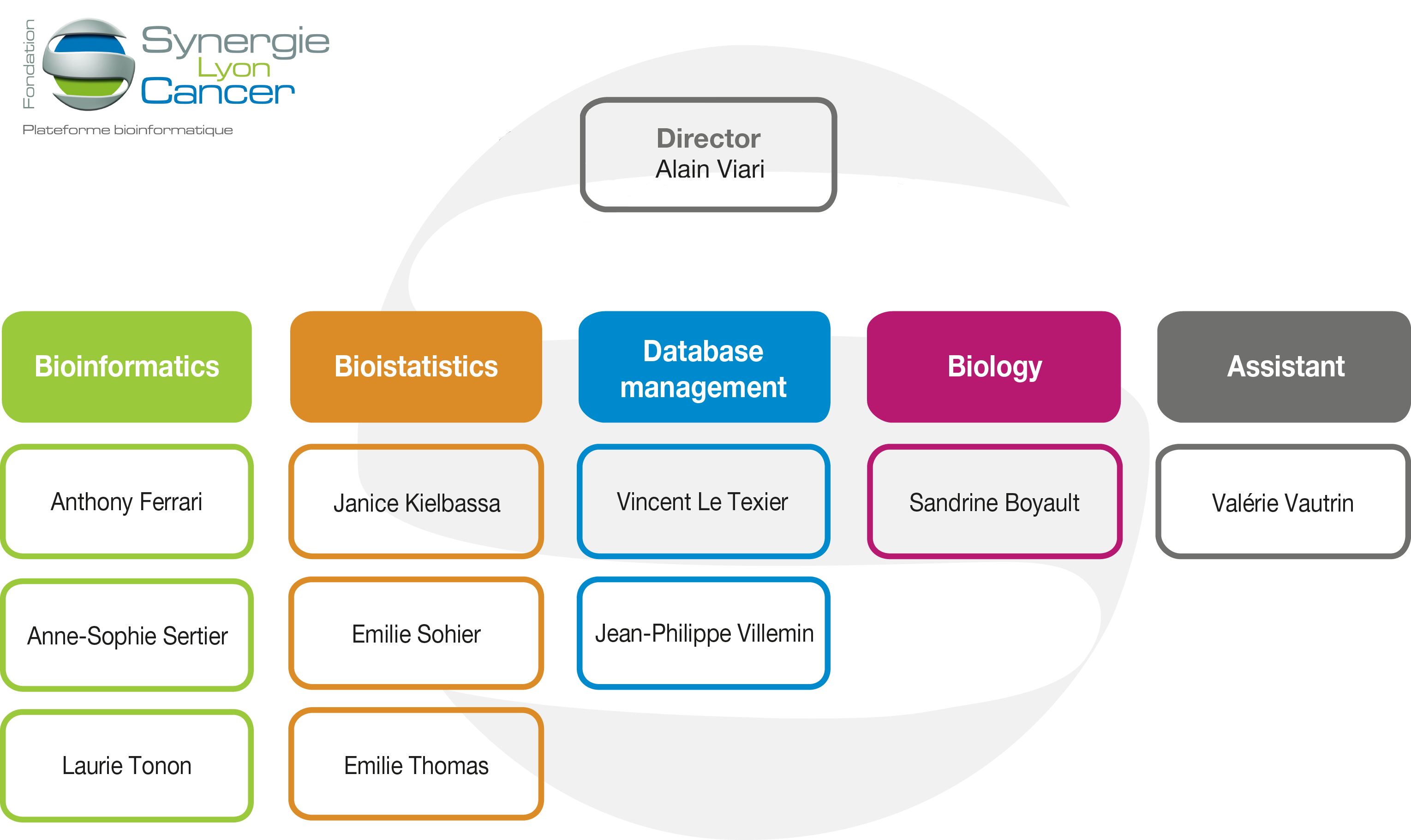A center resulting from the ambition of the INCA, with the support of the actors in cancer research in Lyon
Professor Gilles Thomas, a high level expert in genetics, came from the United States in the framework of a Senior chair of excellence financed by the Synergie Lyon Cancer Foundation. His duel expertise and the desire of INCa to join in the European project BASIS (Breast Cancer Genetics Somatic Study) gave the impetus required to set up a bioinformatics center specialized in cancerology.
Thus, in 2009 the INCa and the Synergie Lyon Cancer Foundation organized the Bioinformatics Center with the support of other partners in Lyon: the Lyon Auvergne Rhône-Alpes Cancer Cluster (CLARA), the Léon Bérard Center for the Fight Against Cancer (CLB) and the Rhône-Alpes Bioinformatics Cluster (PRABI). The center also collaborates closely with the International Agency for Research on Cancer (CIRC).
A precious technological tool undergoing constant development
Professor Gilles Thomas took over responsibility for setting up the center and from the outset instilled it with all his energy and originality. He quickly forged a rare technological tool whose pertinence has won national recognition and praise and which is subject to increasing demand from local research teams, especially in the field of cancer. The projects in which the platform participates have therefore multiplied, consolidating the center’s resources and expertise.
Now directed by Alain Viari, the Bioinformatics Center has become an indispensable tool for analyzing the data generated by existing technologies. Its originality is based on its team’s knowledge of cancer genetics and data processing.
Competences whose scope is focused on the genomic analysis of tumors
The mission of the Bioinformatics Center of the Synergie Lyon Cancer Foundation is to provide resources to research teams working in the field of oncology so they can benefit from recent high throughput genomic technology. All the bioinformatics engineers, biostatisticians and technological resources of the center are totally dedicated to taking the genomic projects to their conclusion. Particular emphasis has been placed on new generation sequencing.
At the heart of an organization dedicated to fighting against cancer, the Bioinformatics Center of the Synergie Lyon Cancer Foundation is very close to the realities faced by doctors and the questions raised by researchers. It also interacts intensively with the main regional actors involved in the development of bioinformatics and automation. This close interface between informatics and cancerology illustrates the whole interest of this laboratory.
Professor Gilles Thomas.


